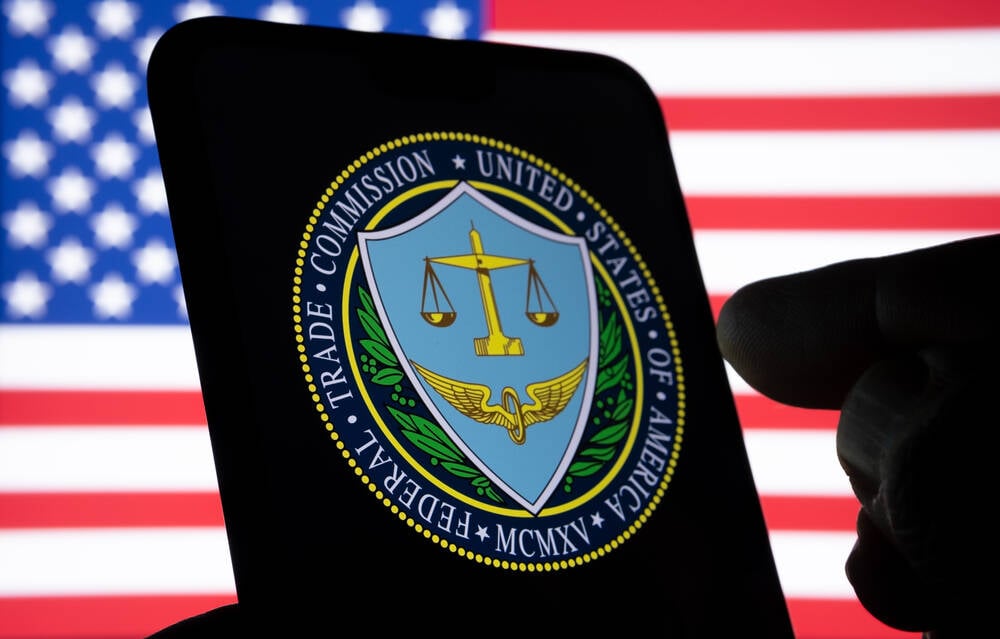
AI hypesters may think their training datasets and models’ output are, or ought to be protected, from copyright claims, but their neural networks could still fall foul of consumer protection laws, the FTC has has warned.
In a memo [PDF] to the US Copyright Office, the consumer and antitrust watchdog said it was interested in issues relating to intellectual property and AI that went “beyond questions about the scope of rights and the extent of liability under the copyright laws.”
The FTC is popping off here about machine learning to the Copyright Office because the latter is probing the messy situation of neural networks, trained on copyrighted work, producing content that seemingly rips off the rights holder, and asked for public comment. Well, the office got it all right, now from the FTC.
“The manner in which companies are developing and releasing generative AI tools and other AI products … raises concerns about potential harm to consumers, workers, and small businesses,” the regulator stated.
“The FTC has been exploring the risks associated with AI use, including violations of consumers’ privacy, automation of discrimination and bias, and turbocharging of deceptive practices, imposters schemes and other types of scams.”
The watchdog gave a few examples of things on its mind right now, regarding AI, having held discussions with people in the arts, media, and machine-learning industries:
- Creatives complaining “their work has been used to train generative AI models without their consent.”
- That “even when some mechanisms have been implemented to offer creators consent and control over whether their work is used in AI training, these measures have been insufficient and ineffective.”
- It’s difficult to tell whether someone’s work has been included in AI training, and some kind of warning or disclosure should be made to indicate this.
- “AI-generated content can easily flood markets, making it difficult for customers and other stakeholders to discern whether content is AI generated.”
- “AI-generated content can mimic the style of specific creators, and users of generative AI tools can exploit the name and reputation of the creator to gain sales and potentially compete with the creator.”
- Generative AI tools “use artists’ faces, voices, and performances without permission to make digital impersonations,” which “can not only create consumer confusion, but it also can cause serious harm to both fans and artists.”
In short, AI output may or may not violate copyright, but it sure as hell might break laws against unfair business practices and fraud. The FTC is focused on that sort of law breaking, and not directly copyright enforcement, though copyright can intertwine its investigations.
Although the US Copyright Office has determined that AI-generated content cannot be protected by current copyright laws, it’s unclear whether the synthetic content violates the human-made intellectual property protections. Text-to-image models, for example, can create digital artwork that mimics the style of artists after having been trained on their creative work.
Big names developing generative AI software – OpenAI, Google, Stability AI, and others – are currently embroiled in copyright lawsuits that have not yet reached a conclusion. The corporations have argued that training neural networks on people’s content falls under fair use, saying they are not merely reproducing existing images or text but transforming them to make something new.
If AI developers are breaking copyright law, these folks may be breaking Section 5 of the Federal Trade Act, which prohibits “unfair or deceptive acts or practices in or affecting commerce,” the FTC added.
“Conduct that may violate the copyright laws,” the regulator argued, “may also constitute an unfair method of competition or an unfair or deceptive practice, especially when the copyright violation deceives consumers, exploits a creator’s reputation or diminishes the value of her existing or future works, reveals private information, or otherwise causes substantial injury to consumers.”
Conduct that may be consistent with the copyright laws nevertheless may violate Section 5
“In addition, conduct that may be consistent with the copyright laws nevertheless may violate Section 5,” the watchdog was quick to add.
The FTC – which has put Big Tech in its cross-hairs under chair Lina Khan – said it wanted to work with the US Copyright Office on this matter, and also cautioned AI companies that it would take action against those flouting the Federal Trade Act.
“There is no AI exemption from the laws on the books. Accordingly, the FTC will vigorously use the full range of its authorities to protect Americans from deceptive and unfair conduct and maintain open, fair, and competitive markets,” it concluded.
“We look forward to collaborating with the US Copyright Office as competition and consumer protection issues surrounding AI-enabled tools and technologies continue to develop.” ®
- SEO Powered Content & PR Distribution. Get Amplified Today.
- PlatoData.Network Vertical Generative Ai. Empower Yourself. Access Here.
- PlatoAiStream. Web3 Intelligence. Knowledge Amplified. Access Here.
- PlatoESG. Carbon, CleanTech, Energy, Environment, Solar, Waste Management. Access Here.
- PlatoHealth. Biotech and Clinical Trials Intelligence. Access Here.
- Source: https://go.theregister.com/feed/www.theregister.com/2023/11/09/ftc_ai_regulation/
- :has
- :is
- :not
- 7
- a
- About
- abuse
- accordingly
- Act
- Action
- acts
- add
- added
- addition
- affecting
- After
- against
- AI
- AI models
- AI training
- All
- also
- Americans
- an
- and
- antitrust
- ARE
- argued
- Artists
- Arts
- artwork
- AS
- associated
- Authorities
- Automation
- BE
- because
- been
- Beyond
- bias
- Big
- big tech
- Books
- both
- Break
- Breaking
- business
- business practices
- businesses
- but
- by
- CAN
- cannot
- Cause
- causes
- claims
- CO
- collaborating
- comment
- Commerce
- Companies
- compete
- competition
- competitive
- Concerns
- concluded
- conclusion
- Conduct
- confusion
- consent
- consistent
- constitute
- consumer
- Consumer Protection
- Consumers
- content
- continue
- control
- copyright
- Corporations
- could
- create
- Creative
- creator
- creators
- Current
- Currently
- Customers
- datasets
- develop
- developers
- developing
- difficult
- digital
- digital artwork
- directly
- discern
- disclosure
- discussions
- easily
- enforcement
- especially
- Even
- example
- examples
- existing
- Exploit
- exploits
- Exploring
- faces
- fair
- Fall
- Falls
- fans
- Federal
- few
- flood
- focused
- For
- Forward
- fraud
- from
- FTC
- full
- future
- Gain
- gave
- generated
- generative
- Generative AI
- got
- harm
- Have
- having
- Held
- her
- here
- holder
- HTTPS
- images
- implemented
- in
- included
- Including
- indicate
- industries
- information
- injury
- intellectual
- intellectual property
- interested
- Investigations
- issues
- IT
- ITS
- jpg
- Kind
- Law
- Laws
- Lawsuits
- learning
- liability
- Look
- machine
- machine learning
- made
- maintain
- make
- Making
- manner
- Markets
- Matter
- May..
- measures
- mechanisms
- Media
- Memo
- merely
- method
- might
- mind
- models
- name
- names
- networks
- neural
- neural networks
- Nevertheless
- New
- no
- now
- of
- off
- offer
- Office
- on
- only
- open
- or
- Other
- otherwise
- output
- over
- People
- performances
- permission
- plato
- Plato Data Intelligence
- PlatoData
- potential
- potentially
- practice
- practices
- privacy
- private
- private information
- producing
- Products
- property
- protect
- protected
- protection
- public
- put
- Questions
- Quick
- raises
- range
- reached
- regarding
- regulator
- releasing
- reputation
- Reveals
- right
- rights
- Rips
- risks
- s
- Said
- sales
- saying
- scams
- schemes
- scope
- Section
- seemingly
- serious
- Short
- should
- situation
- small
- small businesses
- Software
- some
- Someone
- something
- sounds
- specific
- stakeholders
- stated
- Still
- style
- substantial
- sure
- Surrounding
- synthetic
- Take
- tech
- Technologies
- tell
- text
- that
- The
- their
- Them
- There.
- These
- they
- things
- think
- this
- those
- though?
- to
- tools
- trade
- Train
- trained
- Training
- transforming
- types
- under
- unfair
- us
- use
- used
- users
- value
- VIOLATION
- Violations
- VOICES
- wanted
- warning
- was
- watchdog
- we
- WELL
- went
- when
- whether
- which
- will
- with
- without
- Work
- workers
- works
- would
- yet
- zephyrnet












